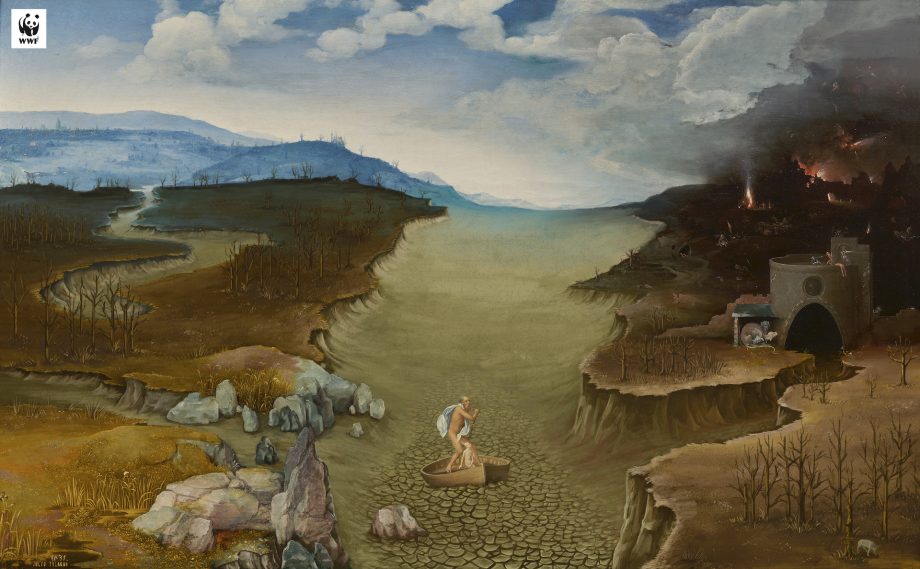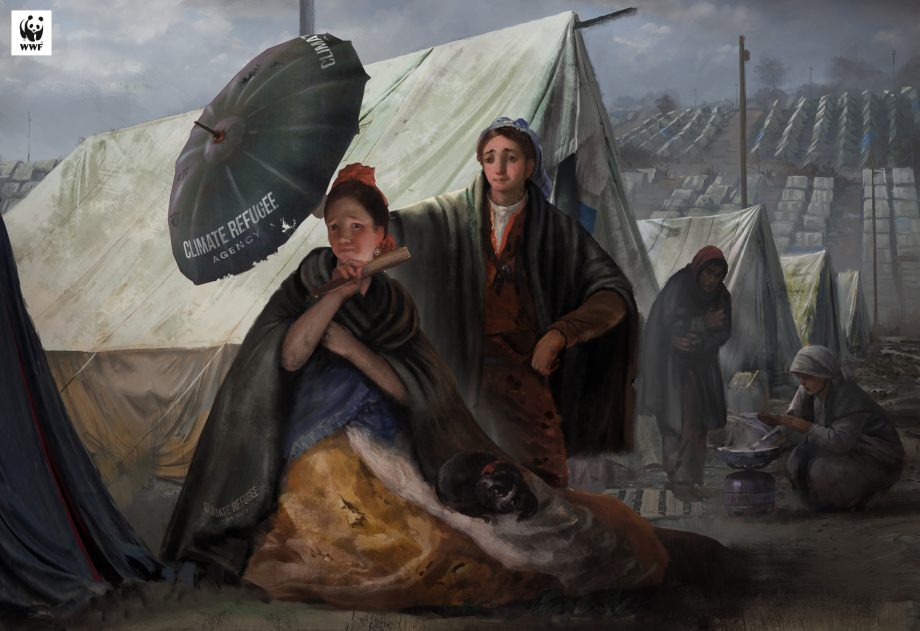From Peter Kropotkin to Leo Tolstoy to Noam Chomsky, some of the most revered anarchist thinkers have exhausted page after page explaining why power over others is unjustified, no matter how it justifies itself. To those who say the wealthy and powerful benefit society with charitable works and occasionally humane policy, Tolstoy might reply with the following illustration, which opens Time editor Anand Giridharadas’ talk above, “Winner Take All,” as animated by the RSA:
I sit on a man’s back, choking him and making him carry me, and yet assure myself and others that I am sorry for him and wish to lighten his load by all means possible… except by getting off his back.
The author of Winners Take All: The Elite Charade of Changing the World, Giridharadas doesn’t make the case for anarchism here, except perhaps by the slightest implication in his choice of epigraph. But he does call out the “winners of our age,” no matter how much they determine to make a difference with humanitarian aid, for being “unwilling to get off the man’s back.” Unwilling to pay taxes, close loopholes and tax shelters, pay higher wages, or stop lobbying to slash public services. Unwilling to reinvest in the communities that made them.
“What does it look like to imagine the kind of change,” Giridharadas asks, “that would involve the winners of our age stepping off that guy’s back? Or being made to step off that guy’s back?” Here, he leaves us with an ellipses and moves to critique the idea of the “win-win” as a means of making change, rather than just exchange.
The market economy has imported the criteria of exchange into politics and social action. Everything is transactional. But in order to address the gross inequities that result in people figuratively sitting on the backs of others, some must gain more power and others must have less. The parties do not meet in a state of ceteris paribus.
One might take issue with the very terms used in “win-win” thinking. Rather than winners, some would call powerful capitalists opportunists, profiteers, and worse. (The term “robber baron” was once in common circulation.) To claim that good works and good intentions obviate massive power imbalances is to presume that such imbalances are justifiable in the first place. Answering this theoretical question doesn’t, however, address the practical problem.
In the current system of corporate misrule, says Giridharadas, “when everything is couched as a win-win, what you are really saying… is that the best kinds of solutions don’t ask anyone to get off anyone’s back.” Unfettered capitalism has brought us the “privatization of public problems.” That is to say, companies profit from the same issues they help create through pollution, predatory schemes, and undue political influence.
You don’t have to be an anarchist to see a serious problem with that. But if you see the problem, you should want to imagine how things could be otherwise.
via Aeon
Related Content:
Saul Alinsky’s 13 Tried-and-True Rules for Creating Meaningful Social Change
Noam Chomsky Explains the Best Way for Ordinary People to Make Change in the World, Even When It Seems Daunting
Teaching Tolerance to Activists: A Free Course Syllabus & Anthology
Josh Jones is a writer and musician based in Durham, NC. Follow him at @jdmagness









